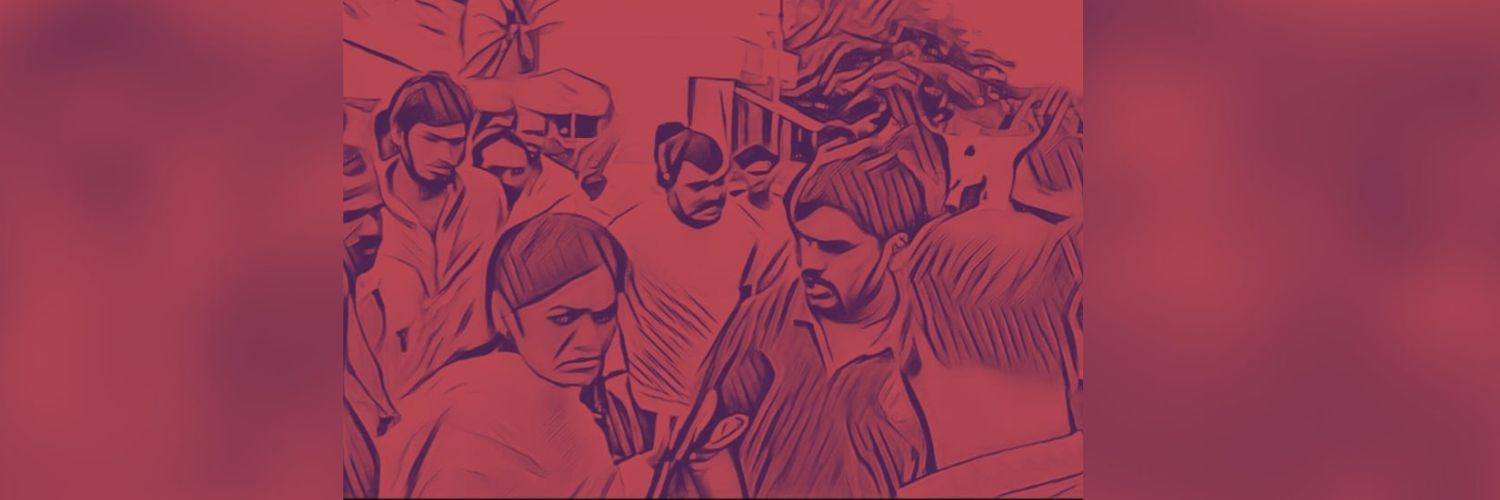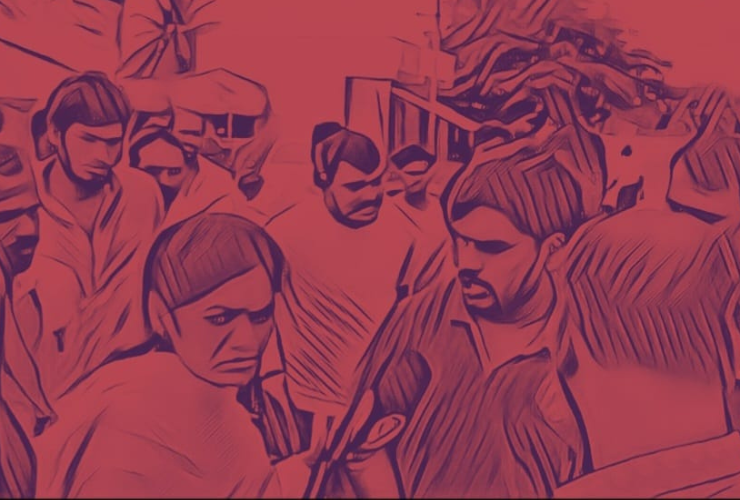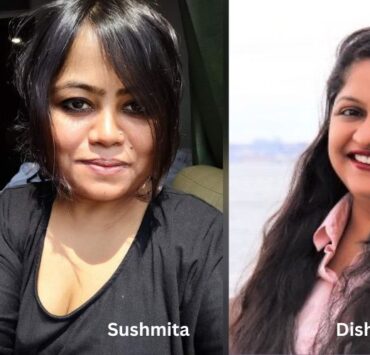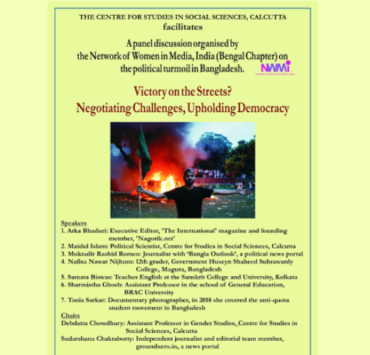
By Editors

“Will there be women journalists left in Telangana in the next 10 years?” This is a serious question raised by about 60 women journalists based in Hyderabad/Telangana. These women journalists, many of whom are members of the Network of Women in Media, India (NWMI) have issued an appeal to the political parties, and state government to act against ongoing trolls, harassment and attacks.
Pegged on a recent incident that occurred on 22 August 2024, and citing a series of incidents relating abuses, trolling, attacks, cases in previous and current times, women journalists demanded a dedicated system to respond promptly to complaints.
If left unchecked, these incidents could soon escalate into serious physical attacks and even worse atrocities. Before such a situation arises, the government must establish a system that quickly addresses the problems faced by women journalists.
Demands to the Government:
- Create a Quick Support System: Establish a rapid-response system to address the issues faced by women journalists.
- Hold Political Parties Accountable for Trolls: Political parties must be held responsible for the harassment originating from fake accounts managed by their supporters. The police department should issue clear warnings to all political parties to this effect.
Below is the full text of the statement released by women scribes:
Press Release
“Will there be women journalists left in Telangana in the next 10 years?”
Our Appeal to the State Government as Women Journalists Working in Telangana
The alarming rise in (verbal and physical) attacks on women journalists in Telangana in recent times has raised serious concerns about the hostile environment the former are working in, every day. The grim situation also poses a million-dollar question – “Will there be any women journalists left in Telangana in the next 10 years?”
These concerns stem from the growing mob attacks that women journalists face, both online and offline, from trolls and self-proclaimed supporters and followers of various political parties. These people are increasingly targeting women journalists who cover political news and subjecting them to harassment in both virtual and physical spaces.
In the latest case, on 22 August 24, two female journalists–Akula Sarita and M Vijaya Reddy–went to Chief Minister Revanth Reddy’s hometown (Kondareddypally village) to report on the loan waiver. However, they were surrounded by the local Congress party supporters / Chief Minister’s followers. The mob snatched their cameras and mobile phones, threw them down, and terrorised them. They had to seek police security to return safely to their homes in Hyderabad. A case has been registered at the Veldanda Police Station regarding this incident. Soon after, Sarita Avula and Vijaya Reddy were subjected to online trolling from netizens associated with the Congress party, who accused them of working for media organisations affiliated with the BRS party.
Attacking journalists simply because they work for media outlets managed by the BRS party is not only morally incorrect but also a clear violation of the law. It’s welcome to criticise the media for not being objective in its reporting or for publishing lies in the name of journalism but intimidating, humiliating, and resorting to violence on the reporters are inhumane.
These attacks have escalated with the surge in troll armies and sycophants associated with various political parties. This situation highlights the extreme vulnerability of women journalists, particularly in the digital space. Journalism isn’t a people-pleasing job and a journalist doesn’t exist to act as per the whims and fancies of the powers that be or their blind supporters. Journalism inherently questions and questioning often causes discomfort. A news analysis or a public opinion will inevitably offend a political party or the other. However, the right way to respond to the questions raised in a news report is either to correct mistakes by submitting facts/evidence or to issue an informed statement. How is it right to attack the journalists who bring this information to light?
In another case, journalist Hema regularly posts the latest news updates and political developments on her social media handle. She does not offer criticism or analysis but merely shares updates. Despite this, she is being severely trolled by pro-BRS party social media accounts.
Naveena, another journalist, covers the Secretariat, Assembly, and political news. During the BRS rule, she primarily posted updates related to the party. This led to severe trolling by pro-Congress social media accounts, labelling her as a “paid journalist of BRS”. Even now, as she continues to cover the Secretariat, Assembly, and political news, her posts naturally include updates on the Congress government and its leaders. But now, the BRS’s supporters are trolling her for providing updates on the Congress government.
Independent journalist Thulasi Chandu, who creates videos analysing developments in Telangana, Andhra Pradesh, and beyond, regularly faces harassment from troll gangs representing all major political parties, including BJP, BRS, TDP, YSRCP, and Congress. Despite raising these issues on her social media accounts and bringing them to the attention of political leaders, the harassment has not stopped. Troll armies continue to attack her across multiple platforms like YouTube, X, and Facebook, with many channels creating dangerous videos that incite netizens against her. She has filed cases against some of these channels and Facebook pages, but no action has been taken yet; the harassment persists.
Senior journalist C Vanaja, a recipient of several prestigious awards like the Ramnath Goenka award, has worked in various publications and TV channels. She has been conducting in-depth political analysis through her YouTube channel for the past two years. Despite her deep analysis of national and international issues, she is also a significant victim of online harassment. The trolling and abuse go beyond comments under her videos; numerous YouTube videos directly target and insult her. Should a journalist stop speaking the truth just because they are being harassed?
Journalist Prema, who runs her own YouTube channel, faced severe harassment from troll armies of political parties on social media for conducting interviews with certain political leaders during elections. Venu Swamy, known for making sensational claims about the horoscopes of celebrities, falsely accused Prema and dragged her name into a recent phone call conversation, where it was alleged that she would receive a share of ₹5 crore, supposedly demanded by TV5 Murthy. Despite her decades of experience in various organizations and hosting programs like “Prajapaksham”, Prema continues her career as an independent journalist. Even when experienced journalists like her are being subjected to harassment, where can they turn for help?
Lakshmi, a film journalist, is also facing severe online trolling for doing her job—questioning celebrities and expressing her opinions at press meets.
Cases of harassment by the state police
Meanwhile, the police – who are supposed to protect journalists – have at times contributed to their harassment.
The case of journalist Radhika exemplifies this issue. While covering the ANMs’ agitation near Pragati Bhavan during the BRS government, ACP Venkateswarlu, who was on duty, attempted to stop her from live reporting on the police lathi-charge against the protesting women. He shoved her away by pressing a hand against her chest. Even the cameraman was also attacked. Radhika filed a case at the Panjagutta police station against the ACP, yet no action has been taken.
Despite numerous complaints about the harassment faced by women journalists, the police have remained unresponsive, causing further mental anguish and making the victims even more vulnerable.
The harassment of journalist Revathi by the police has also been discussed in the Assembly. After Revathi tweeted about the police visiting a woman’s house in LB Nagar following a tweet regarding an electricity problem, the cops registered an FIR against Revathi, though she committed no crime. She simply highlighted a woman’s issue as part of her professional responsibilities. It is alarming that the police, who should protect journalists, are instead targeting them. If the police themselves are the source of harassment, where can journalists seek redress?
Recently, 10 TV journalist Tejaswini faced humiliating treatment by an SSI while covering the Ellamma Bonalu festival in Balkampet. Despite all journalists’ pleas, the SSI denied VIP access to many, including Tejaswini, who was five months pregnant and requested to be allowed in due to her condition. When she said she was pregnant, the SSI shockingly asked, “Give me proof of your pregnancy!” Minister Ponnam Prabhakar, who was at the temple, and Hyderabad Mayor Vijayalakshmi intervened and apologised. Sadly, no action has been taken against the SSI yet. Although journalists united to protest the insult against Tejaswini, leading to a reaction, such solidarity isn’t always present. What should journalists do in those situations?
If the police do not respond, what recourse do young journalists have? Can young women take up journalism as a profession if women in media are regularly insulted with vulgar language and targeted personally and professionally?
These examples represent only a fraction of the struggles faced by women journalists. The combination of online trolls and offline attacks has become a significant problem for women in media. This raises concerns about whether women will continue to pursue journalism in the future. The choice of whether or not to remain in the profession should be a personal one, but if women avoid or leave journalism due to harassment, it becomes a societal problem that demands a solution.
A dedicated system must be established to respond promptly to complaints. If left unchecked, these incidents could soon escalate into serious physical attacks and even worse atrocities. Before such a situation arises, the government must establish a system that quickly addresses the problems faced by women journalists. This is our appeal as women journalists working in Telangana.
Our Demands to the Government:
Create a Quick Support System: Establish a rapid-response system to address the issues faced by women journalists.
Hold Political Parties Accountable for Trolls: Political parties must be held responsible for the harassment originating from fake accounts managed by their supporters. The police department should issue clear warnings to all political parties to this effect.
The statement against attacks on women journalists is supported by:
| Radhika, NTV
C Vanaja, Independent Journalist Thulasi Chandu, Independent Journalist Hema, ABN Laxmi, V6 Haritha Puli, V6 Eswari Vanitha, TV Saritha, Telugu Scribe Vijaya Reddy, Mirror TV Rajeshwari Kalyanam, Independent Journalist S Rama Saraswathi, Sakshi Telugu News Daily Manju Latha Kalanidhi Anjuma Mahmed Y Krishna Jyothi Pranitha, TV9 Bhavani Devineni Shilpa, R TV Lahari, I news Harika, Red TV Prathyusha, MIC TV Rajeswari, Janam Sakshi Prathibha Devi, Independent Journalist Taruna, NTV Gayatri Pandalaneni Roopavani Koneru, AIM TV TELUGU B Sumabala Pasupuleti Priyanka Uma Devi
|
Sravani, Qube TV network
Manjari K Swaroopa Potlapalli, Andhra Prabha Prema Malini, Independent Journalist Chaitanya G, Mirror TV Swetcha T news Aruna Chandraraju Rachana Mudumbi, Independent Journalist Aruna Kurapati, MIC TV Jyothi Kalpana, Sakshi TV Kanthi, HMTV (AMARAVATHI) Suvarna Sankasarla, Janam Sakshi AL Sharada, Population First D Padmasri Shanti Ishaan P Revathi Independent Journalist Dr. Challa Bhagyalakshmi, TV9 M Haritha Goud – News Kine Telugu Ajitha, Maha TV Ramya ETV S.Bhavana from news 360 Petricia Godla, Rtv J Syamala E Agitha Amrutha Chinthallagattu tv9 Tejaswini, 10tv Swapna, Raj news A Jayasree Y Vasantha, Andhra Prabha
|
Links to news reports:
https://hyderabadmail.com/telangana-women-journalists-survival/




